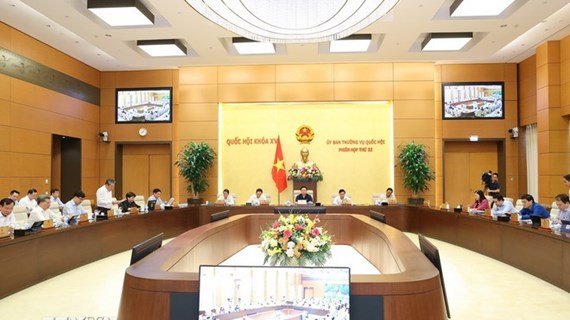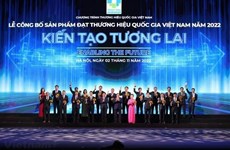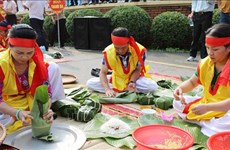Amendment to legal documents needed for heritage management
The Vietnam National Committee for UNESCO will evaluate issues related to the legal corridor and management mechanism to promote the value of heritages in the new situation.
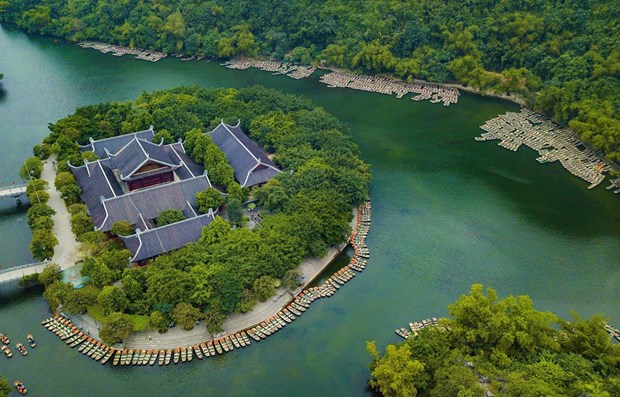 Trang An Landscape complex in the northern province of Ninh Binh (Photo: VNA)
Trang An Landscape complex in the northern province of Ninh Binh (Photo: VNA)Since joining the UNESCO in 1976, Vietnam has always been an active and responsible member. The titles of cultural and natural heritage, biosphere reserve, and global geopark recognised by UNESCO have contributed to promoting Vietnam's beautiful landscape and tourism and protection of the environment.
However, the heritage management work still shows inadequacies because many regulations are no longer suitable to the new situation. Another issue is the lack of a unified legal framework for managing heritage sites.
Outdated regulations
Speaking at an international workshop on perfecting the apparatus of the Vietnam National Committee for UNESCO on September 30, Cung Duc Han, member of the Secretariat of the committee, said cooperation activities between the committee and UNESCO have been widely interdisciplinary, requiring the participation of many ministries, sectors and localities.
However, he noted that some regulations are no longer relevant to the current situation and need to be reviewed and adjusted.
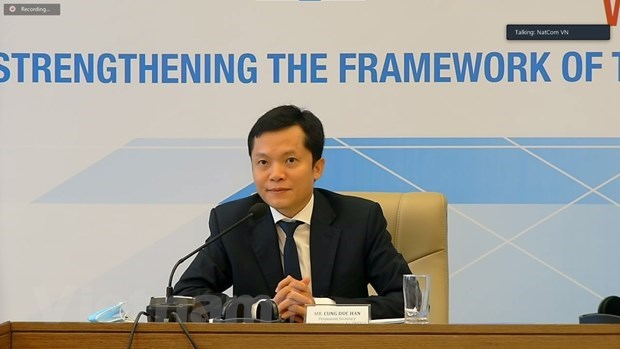 Photo: Cung Duc Han, member of the Secretariat of the Vietnam National Committee for UNESCO (Photo: VietnamPlus)
Photo: Cung Duc Han, member of the Secretariat of the Vietnam National Committee for UNESCO (Photo: VietnamPlus)“We still lack a unified legal framework to manage heritage sites, global geoparks, and biosphere reserves,” Han said.
The coordination mechanism between sub-committees and management boards is still not really effective, he noted, emphasising the need to improve these issues in order to protect the heritage value and recognised statuses.
According to Le Thi Thu Hien, Director of the Department of Cultural Heritage under the Ministry of Culture, Sports and Tourism, the documentary heritage management has not yet been regulated in the Law on Cultural Heritage. Therefore, it is extremely urgent to perfect the system of legal documents in order to effectively manage, protect and promote the value of documentary heritage.
From another perspective, Pham Sinh Khanh, Deputy Director of the Management Board of Trang An Landscape Complex, said that the public-private partnership model in managing and promoting heritage at the complex is the most sustainable method to promote values of the heritage.
However, there are still businesses and people who attach more importance to economic benefits than conservation. Violations of regulations on management and conservation of heritage have not been handled thoroughly, he added.
Although initially successful and effective, this model is still quite new in terms of management and exploitation of heritage values, so the relevant legal system is still not concerted, and sometimes overlaps, Khanh said.
Concerted management model needed
At the workshop, experts made recommendations to amending and supplementing regulations related to the operation of the Vietnam National Committee for UNESCO as well as improving the legal framework in order to enhance Vietnam’s role in the global UNESCO network.
Deputy Director of the Biodiversity Conservation Agency Dr. Hoang Thi Thanh Nhan said that the Ministry of Natural Resources and Environment is advising the Government to create a legal corridor in order to develop a network of biosphere reserves in Vietnam, implement management guidance and capacity building activities for biosphere reserves in the network.
Pilot activities are being carried out in the Biosphere Reserves of Tay Nghe An, Cu Lao Cham- Hoi An and Dong Nai, she said.
In the coming time, the Ministry of Natural Resources and Environment will have a programme to promote strengths of biosphere reserves in ecotourism activities, she said, adding that the ministry will provide legal guidance to identify potential areas and nominate new zones./.





